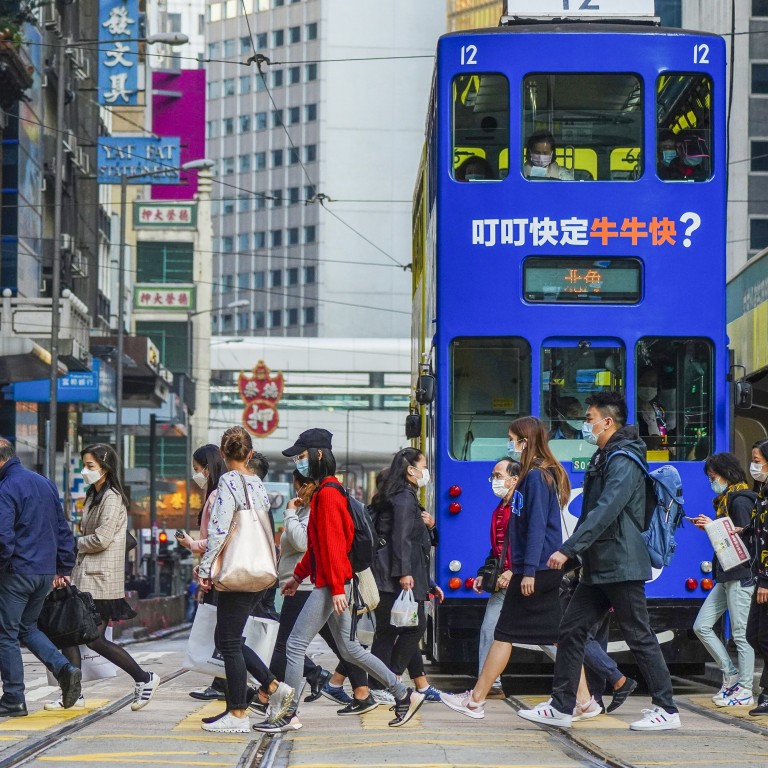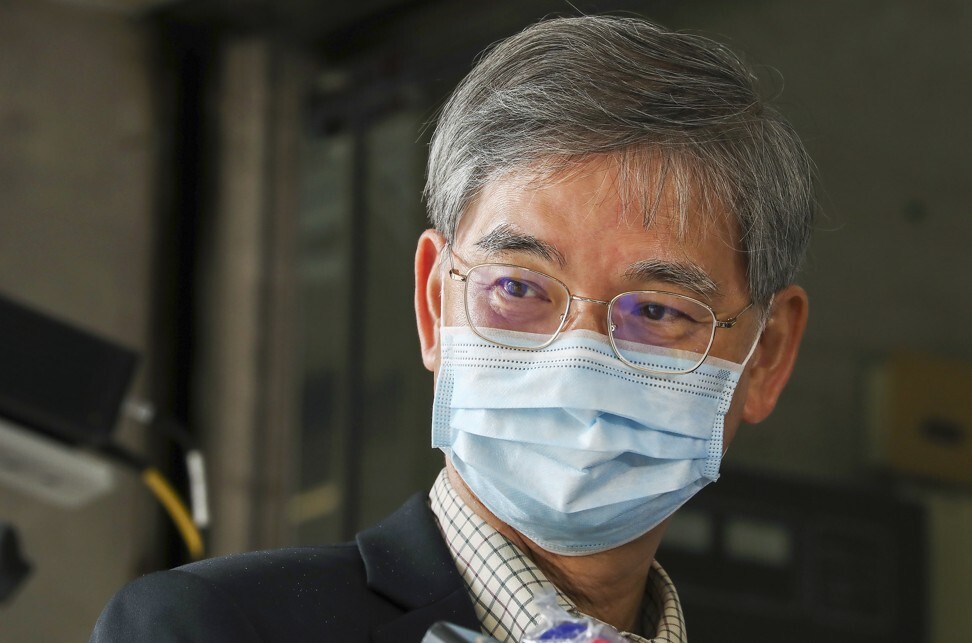
Coronavirus: Hong Kong welfare minister rejects calls for a temporary unemployment fund to help jobless through the pandemic
- Labour unions want a HK$15 billion unemployment fund that will distribute HK$9,000 a month to the city’s jobless for up to six months
- Law Chi-kwong waves off the demands, insisting there are fairness issues in such a system and pointing to existing welfare support
Hong Kong’s welfare chief has rejected fresh calls for a temporary unemployment fund to support those out of work, after predicting the city’s jobless rate would soon surpass 7 per cent.
“For setting up a temporary unemployment fund, it is difficult to draw a line for when this scheme should stop,” he told a Sunday radio programme.
Hong Kong unemployment ‘to surpass 7 per cent’ after Lunar New Year
“It would be strange if we halted the scheme after a certain period of time or when the unemployment rate had dropped to a certain percentage point ... For every public policy, we need to be fair.”
Demands for the support fund have been ramped up since Law warned on Saturday that Hong Kong unemployment could break the 7 per cent mark after the Lunar New Year holiday, with official figures due out on February 18.
Labour unions have suggested setting up a HK$15 billion unemployment fund from which a monthly cash allowance of HK$9,000 (US$1,160) would be issued for up to six months to those without a job.
In the final quarter of last year, the city’s unemployment rate reached 6.6 per cent, setting a new 16-year high, with the number of people out of work standing at 245,800. Retail, accommodation and catering were among the hardest-hit sectors.

Law said past experience showed it could take years for the jobless rate to fall back to less worrying levels.
He said it took a year for the rate to drop to 6.6 per cent in June 2004, from 8.5 per cent in June 2003. More recently, there was a two-year gap between unemployment hitting 5 per cent in 2009 and receding to 3.3 per cent in 2011.
“Don’t expect that the unemployment rate will fall very quickly once the pandemic is over,” he warned.
“This time unemployment has imposed a structural impact on the economy, especially tourism. I think it will take a long time for the jobless rate to go down.”
Law argued it would be unfair if a time limit was attached to the proposed unemployment fund. “Other ways are also not fair for eligible parties,” he said.
The welfare minister said anyone in need of financial support could apply to the Comprehensive Social Security Assistance (CSSA) scheme.
‘I considered resigning’: Hong Kong’s labour minister with opposition background
However, Bill Tang Ka-piu, employee representative of the Labour Advisory Board, said the CSSA scheme imposed many barriers on unemployed people making applications.
“It is very difficult for jobless people to apply for CSSA as its application is made and assessed on a household basis instead of an individual basis,” he said.
“If other family members have a job, it is difficult for jobless people to apply. Also it takes quite a long time to process an application. But for the unemployed, they need immediate help.”
Law countered that as long as the family’s overall income met the CSSA eligibility criteria, those out of work could still apply, even though some relatives were employed.
But Tang insisted the government move ahead with a temporary unemployment fund, saying it could offer targeted and immediate financial aid to those out of work.
“Applicants of CSSA need to go through complex vetting procedures about their income and assets, which explains why so many people are reluctant to apply for it,” he said.

